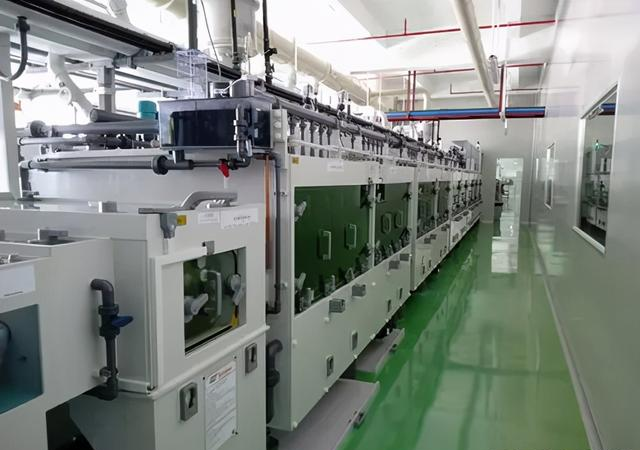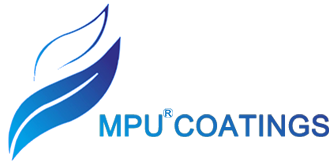
Why Self-Leveling Polyurea Coatings are Ideal for Circuit Board Factories
Understanding the Demands of Circuit Board Factories
Circuit board factories are specialized environments where precision, cleanliness, and durability are paramount. These facilities manufacture printed circuit boards (PCBs), which are integral components in virtually all electronic devices. The production process involves several critical stages, such as photolithography, etching, electroplating, and component assembly, each of which imposes unique demands on the factory floor.
-
Etching Workshops: These areas use highly corrosive acids to remove unwanted copper from the PCB substrate, a process that is crucial for defining circuit pathways. The floors in these areas need to be highly resistant to chemical exposure.
-
Electroplating Workshops: Here, a thin layer of metal is applied to the PCB, enhancing conductivity and providing corrosion protection. The presence of chemical tanks and strong acids requires robust flooring that can withstand harsh environments.
-
Dust-Free Environments: To prevent contamination that could lead to defects in circuit boards, certain areas must maintain a dust-free atmosphere, necessitating seamless and easy-to-clean flooring.
-
Heavy-Duty and Anti-Static Requirements: The flooring must also withstand the weight of forklifts and other heavy machinery, remain seamless to prevent dust accumulation, and provide anti-static properties to protect sensitive electronic components.
Given these stringent requirements, the choice of flooring material is critical. Among the available options—epoxy, polyurethane, and polyurea—polyurea coatings emerge as the most suitable for circuit board factories. Within the polyurea family, self-leveling polyurea coatings offer the most advanced solution, providing unparalleled performance in these demanding environments.
Comparing Flooring Options: Epoxy, Polyurethane, and Polyurea
When selecting a flooring material, it’s essential to consider the specific needs of a circuit board factory. The following table provides a clear comparison of the three main options:
| Property | Epoxy | Polyurethane | Polyurea |
|---|---|---|---|
| Chemical Resistance | Good, but sensitive to certain acids and bases | Good, suitable for chemical exposure environments | Excellent, resistant to various strong acids, bases, and solvents |
| Flexibility | Low, prone to cracking under heavy loads | High, strong resistance to scratches and cracks | Extremely high, absorbs impacts and resists cracking |
| UV Resistance | Prone to brittleness and discoloration under UV exposure | Good, but moisture-sensitive during application | Excellent, resistant to UV and high-temperature environments |
| Abrasion Resistance | Good, but wears down in heavy machinery areas | Good, suitable for high traffic areas | Excellent, ideal for high traffic and heavy machinery areas |
| Ease of Application | Easy to apply, but requires multiple coats | Requires experienced applicators due to faster pot life | Fast curing, easy to apply, single-coat application |
| Curing Time | Long, often requiring several days | Shorter, but demands experienced application | Very short, cures within hours, minimizing downtime |
| Corrosion Resistance | Good, but limited chemical resistance | Good, suitable for chemically exposed environments | Superior, especially in corrosive environments |
| Environmental Impact | Contains volatile organic compounds (VOCs) | Contains volatile organic compounds (VOCs) | Low VOCs, more environmentally friendly |
This table clearly demonstrates the advantages of polyurea over epoxy and polyurethane, particularly in terms of durability, chemical resistance, and environmental impact.
Why Polyurea is the Optimal Choice:
In a PCB factory, the floor must endure heavy foot traffic, chemical exposure, and mechanical stress while maintaining a clean, slip-resistant surface. Polyurea is the optimal choice due to its elastomeric nature, which allows it to absorb impacts and accommodate structural movement without cracking or peeling. Its fast cure time reduces operational downtime, and its customizable properties ensure the floor meets the specific demands of a PCB factory.
The Unmatched Advantages of Self-Leveling Polyurea Coatings
Self-leveling polyurea coatings take the benefits of polyurea to the next level, offering specific advantages that make them the superior choice for circuit board factories:
-
Seamless and Smooth Surface: Self-leveling polyurea naturally flows to create a completely seamless surface, crucial for maintaining a dust-free environment. This seamless finish is superior to brush and roller coatings, which can leave behind marks and imperfections.
-
Uniform Coating Thickness: This type of coating ensures consistent thickness across the floor, enhancing durability and chemical resistance, which is vital in areas exposed to corrosive substances like acids used in etching and electroplating.
-
Superior Chemical Resistance: The consistent coverage of self-leveling polyurea offers better protection against chemical exposure, reducing the risk of corrosion and extending the floor’s lifespan.
-
Enhanced Durability and Longevity: The even distribution of the coating minimizes weak points, resulting in a floor that can withstand the heavy-duty demands of a PCB factory for longer periods without requiring frequent maintenance.
-
Ease of Cleaning and Maintenance: The smooth, seamless surface is easier to clean and maintain, preventing dust and debris accumulation that could interfere with PCB manufacturing processes.
-
Faster Application and Cure Time: Self-leveling polyurea coatings feature rapid curing times, reducing installation downtime. This is crucial in manufacturing environments where any delay can lead to significant financial implications.
-
High Load-Bearing Capacity: The uniform thickness of the self-leveling coating ensures that it can bear heavy machinery and equipment without damage, unlike brush or roller coatings, which may have inconsistent thickness and lower load-bearing capacity.
Application Method and Recommended Usage
Surface Preparation:
- Clear the floor of all objects and close windows to control humidity.
- Prepare the concrete surface using grinding, shot blasting, or acid etching to achieve a Concrete Surface Profile (CSP) of 2-4.
- If applying directly on concrete, use MPU Primer EW02T at a recommended rate of 0.15-0.3 kg/m².
Mixing and Application:
- Mix the polyurea components with a high-speed mixer at 400rpm for 2-3 minutes.
- Transfer the mixture to a second container and mix for an additional 30 seconds.
- Apply the polyurea mixture with a brush, roller, or rubber squeegee, at a recommended rate of 1-2 kg/m². This self-leveling coating is applied in a single layer and requires no topcoat, simplifying the process and ensuring excellent durability.
Curing and Recoating:
- The polyurea coating becomes tack-free within 1-4 hours and fully cures within 24 hours.
Conclusion
In conclusion, self-leveling polyurea coatings offer the most advanced solution for the demanding environment of a circuit board factory. Their seamless application, superior chemical resistance, and durability make them the ideal choice. The ability to apply a single coat without the need for a topcoat simplifies the installation process, while the fast cure time minimizes operational downtime. For any PCB factory seeking the highest performance in flooring solutions, self-leveling polyurea is the clear winner.
Reference link:
The Top 5 Business Use Cases For Polyurea Coatings: Enhancing Protection And Efficiency
Polyurea Floor Coatings vs Epoxy Floor Coatings
Self-Leveling Epoxy Coatings are Ideal for Industrial Flooring




